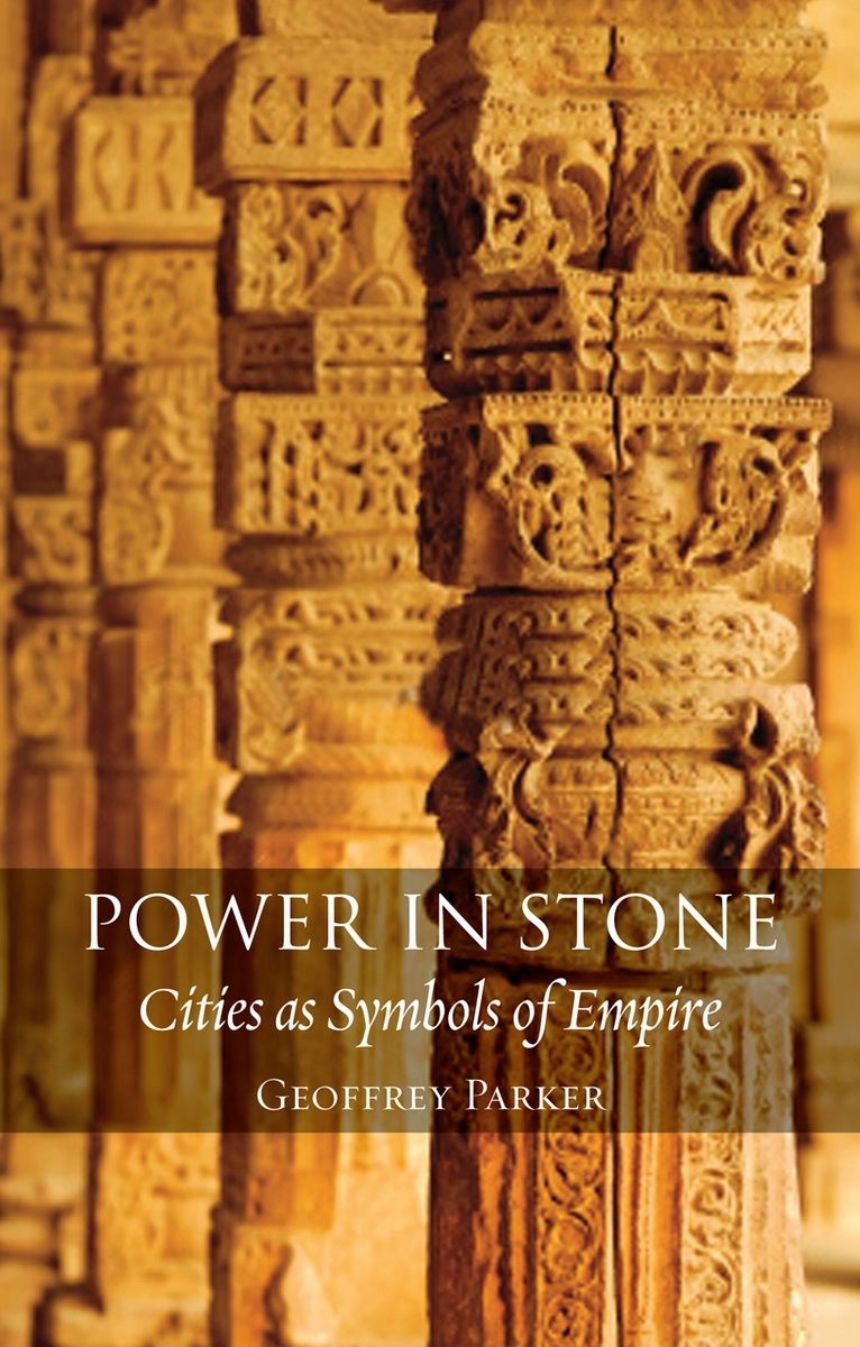From ancient Persia to the Third Reich, imperial powers have built cities in their image, seeking to reflect their power and influence through a show of magnificence and a reflection of their values. Statues, pictures, temples, palaces—all combine to produce the necessary justification for the wielding of power while intimidating opponents. In Power in Stone, Geoffrey Parker traces the very nature of power through history by exploring the structural symbolism of these cities.
Traveling from Persepolis to Constantinople, Saint Petersburg to Beijing and Delhi, Parker considers how these structures and monuments were brought together to make the most powerful statement and how that power was wielded to the greatest advantage. He examines imperial leaders, their architects, and their engineers to create a new understanding of the relationship among buildings, design, and power. He concludes with a look at the changing nature of power in the late twentieth and twenty-first centuries and the way this is reflected symbolically in contemporary buildings and urban plans. With illuminating images, Power in Stone is a fascinating history of some of the world’s most intriguing cities, past and present.
Traveling from Persepolis to Constantinople, Saint Petersburg to Beijing and Delhi, Parker considers how these structures and monuments were brought together to make the most powerful statement and how that power was wielded to the greatest advantage. He examines imperial leaders, their architects, and their engineers to create a new understanding of the relationship among buildings, design, and power. He concludes with a look at the changing nature of power in the late twentieth and twenty-first centuries and the way this is reflected symbolically in contemporary buildings and urban plans. With illuminating images, Power in Stone is a fascinating history of some of the world’s most intriguing cities, past and present.
Table of Contents
Note on Spelling
Prologue: Symbols of Power
1. Persepolis and the Persian Empire
2. ‘Three Romes’: City-state, Imperium and Christian Capital
3. Constantinople and the New Lords of the Golden Horn
4. From Karakorum to Shakhrisabz: Centres of Power of the Imperial Nomads
5. Power over East Asia: The Forbidden City and the Middle Kingdom
6. Power over South Asia: The ‘Seven Cities’ of Delhi and the Saptusindhu Capital Region
7. Global Power: Philip II and the Escorial
8. Grandeur: Louis XIV and Versailles
9. St. Petersburg and the Imperial Vision of Peter the Great
10. Ghosts of Glory: Postscripts to Power
11. Apex or Decline? New Delhi and British Imperial Power
12. Architects of Empire: Hitler, Speer and the Germania Project
13. Cyrus with Golden Caviar: Persepolis Revisited
14. ‘Cities and Thrones and Powers’
15. After Empire: Post-imperial Symbols of Power
Appendix: The Terminology of Empire and Imperialism
References
Bibliography
Acknowledgements
Photo Acknowledgements
Index
Prologue: Symbols of Power
1. Persepolis and the Persian Empire
2. ‘Three Romes’: City-state, Imperium and Christian Capital
3. Constantinople and the New Lords of the Golden Horn
4. From Karakorum to Shakhrisabz: Centres of Power of the Imperial Nomads
5. Power over East Asia: The Forbidden City and the Middle Kingdom
6. Power over South Asia: The ‘Seven Cities’ of Delhi and the Saptusindhu Capital Region
7. Global Power: Philip II and the Escorial
8. Grandeur: Louis XIV and Versailles
9. St. Petersburg and the Imperial Vision of Peter the Great
10. Ghosts of Glory: Postscripts to Power
11. Apex or Decline? New Delhi and British Imperial Power
12. Architects of Empire: Hitler, Speer and the Germania Project
13. Cyrus with Golden Caviar: Persepolis Revisited
14. ‘Cities and Thrones and Powers’
15. After Empire: Post-imperial Symbols of Power
Appendix: The Terminology of Empire and Imperialism
References
Bibliography
Acknowledgements
Photo Acknowledgements
Index

